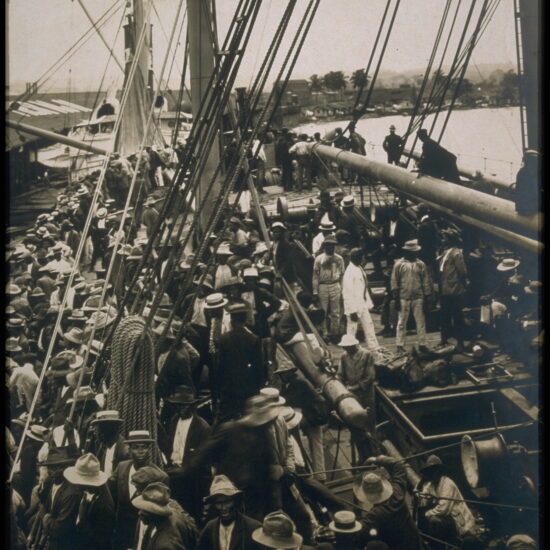
Black Laborers on the Panama Canal
West Indian, especially Barbadian, migrant labor on the Panama Canal changed shipping routes, benefitted the U.S. economy, and affected immigration for decades afterward.

Lia T. Bascomb is an Associate Professor in the Department of Africana Studies, and affiliated with the Institute for Women’s, Gender, and Sexuality Studies and the Center for Latin American and Latino Studies at Georgia State University. She is trained as an interdisciplinary Black studies scholar with emphases in diaspora theory, cultural theory, visual culture, performance studies, gender and sexuality, and literature. Her scholarly interests focus on representations and performances of nation, gender, and sexuality across the African diaspora with an emphasis on the Anglophone Caribbean. She has published in journals such as Meridians, Souls, Palimpsest, Anthurium, Antipode, and the Black Scholar, and her book, In Plenty and In Time of Need: Popular Culture and the Remapping of Barbadian Identity, is part of the Critical Caribbean Studies Series at Rutgers University Press.
Listen to Lia discuss Black history and the essay.

West Indian, especially Barbadian, migrant labor on the Panama Canal changed shipping routes, benefitted the U.S. economy, and affected immigration for decades afterward.